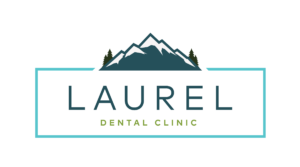Recreational cannabis (marijuana) consumption has been legal in Washington State since 2012. With the increase in cannabis use since it’s legalization, we are better able to see the effects it has on oral health.

As health professionals, we understand the benefits cannabis use can have to treat a variety of ailments, but we also have to educate consumers about the impacts it can have on gum and tooth health.
It is important for you to make the decision if the benefits outweigh the possible adverse effects for your personal situation. While data is still somewhat limited, here is what we are learning about the relationship between marijuana and oral health today.
Risk of Periodontal Disease with Cannabis
As the legalization of marijuana is still relatively recent and is only occurring on a state by state basis, there isn’t a lot of data to determine long term oral health effects.
The data is also confounded by a number of associated factors seen in frequent marijuana users including, high tobacco, alcohol and other drug use, poor oral hygiene practices and increased snacking on high sugar/carbohydrate foods. Smoking (of any kind) can also lead to dry mouth (xerostomia), which significantly increases the risk for cavities.
Marijuana use has also been associated with increased risk of periodontal disease. A systematic review published in 2019 that adjusted for the previously mentioned confounding factors found significantly higher rates of periodontal disease in marijuana users over non-users. They also found that of those cases, there was an increase in the number of pocket depths greater than 4mm, meaning greater attachment loss and worse severity of disease.
THC is an Appetite Stimulant in Cannabis
Caries rates among Cannabis users are usually higher than the average adult. The phenomenon of the “munchies” after using marijuana is no fable. THC is an appetite stimulant, but it also causes dopamine release; therefore, cravings spike after using marijuana.
This positive feedback mechanism promotes those who use marijuana to eat while using, and commonly users are seeking carbohydrate rich snacks. This craving for salty or sweet treats combined with potentially low motivation for diligent oral hygiene, promotes a higher caries risk.
Long Term Effects of Cannabis Use
• Practice good oral hygiene habits at home. Brushing for 2min2x/day with an electric toothbrush, and flossing or using a water flosser daily.
• Drink lots of water, maintain a balanced diet and try to avoid frequent soda drinking and carbohydrate rich snacking.
• Use a toothpaste and mouthrinse that contain fluoride. If you have concerns about fluoride, try xylitol as an alternative.
• Stay up to date on dental visits. Keeping up your preventive visits will ensure we catch any emerging disease or cavity early on.
• Consider oral administration of marijuana compared to smoking or vaping.
• If you notice dry mouth, speak with your dental provider to learn how you can treat it.
• Ask questions! We know many people still do not feel comfortable discussing their marijuana use, but please be assured we as health care professionals are not here to judge you. We are here to share the knowledge we have gained to improve your oral health!
References
American Dental Association – https://www.ada.org/en/member-center/oral-health-topics/cannabis
Leafly – leafly.com/news/health/is-cannabis-ruining-your-teeth
Oral Health Group – https://www.oralhealthgroup.com/features/marijuana-what-dentists-need-to-know/

